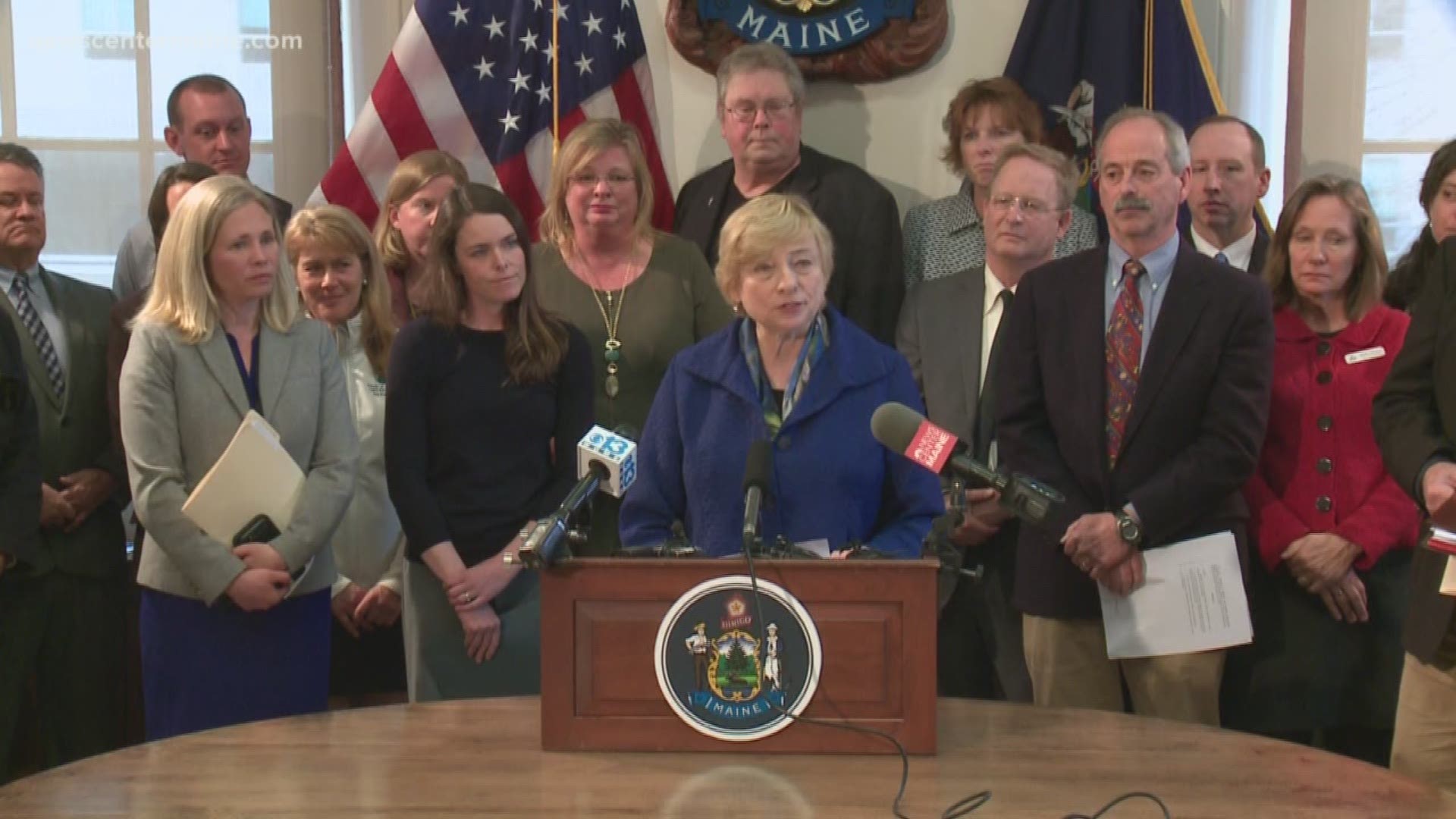MAINE, USA — Six expert working groups of the Maine Climate Council will present draft strategies for addressing climate change in Maine during the council's two-day virtual meeting on June 17 and 18.
The presentation of these draft strategies is a key milestone in the Councils charge to deliver a comprehensive four-year Climate Action Plan to the legislature by Dec. 1, 2020, as outlined in state law. Due to the COVID-19 pandemic, the Council swiftly shifted to all-virtual processes in mid-March to meet this deadline.
"I want to commend everyone involved with the Council and Working Groups for their resolve during the disruption from COVID-19 to meet this milestone," Jerry Reid, co-chair of the Council and commissioner of the Maine Department of Environmental Protection, said. "It has been amazing to see so many Maine people devote their time and talents to develop this thoughtful set of draft strategies."
The goal of the Council is to recommend ways for Maine to address the threat of climate change in an economical and equitable way, meet greenhouse gas reductions and renewable energy generation targets, grow lasting economic opportunities across the state through innovation and new industries, and ensure communities, industries and people are resilient to the effects of climate change.
These strategies come at a time that, despite the significant global economic and social disruptions caused by the COVID-19 pandemic, world climate trends remain unchanged and unsettling. A recent analysis released by the National Oceanographic and Atmospheric Agency found the average global land and water temperature last month was tied for the highest of any month of May since 1880. The agency also reported 2020 has 99.9 percent probability of being among the top five warmest years on record.
"These climate trends are tremendously concerning, and the world we leave to our children depends on our actions today," Hannah Pingree, co-chair of the Maine Climate Council and Director of the Governors Office of Policy Innovation and the Future, said. "These draft strategies are a critical step forward for Maine to determine its climate future, protect our communities from climate-induced harms, and identify opportunities to help our states economy recover from COVID-19."
The draft strategies presented this week are the product of the Councils six Working Groups: Transportation, Natural and Working Lands, Coastal and Marine, Buildings, Infrastructure and Housing, Energy, and Community Resilience Planning, Public Health and Emergency Management. These groups, plus a Scientific and Technical Subcommittee, have met publicly since last fall to evaluate options and compile a set of draft strategies for the council to consider.
Later this summer, the council is expected to receive a detailed cost-benefit analysis of the draft strategies to further inform its deliberations on the Climate Action Plan prior to its next scheduled quarterly meeting in September. The law requires the state to achieve a 45% reduction in green-house gas emissions by 2030 and an 80% reduction by 2050, and the plan is required to support those targets.
Following the presentation to the council, the public will be invited to respond to the draft strategies via a new online portal, off-line toolkit, and virtual seminars. In-person gatherings are also under consideration, if they can be held safely to protect public health and prevent the possible spread of COVID-19.
The Maine Climate Council, which was proposed by Governor Mills in April 2019 and passed with overwhelming bipartisan support in the legislature, is an assembly of science and technical experts, business and nonprofit leaders, key state leaders, bipartisan municipal leaders, a tribal representative, a representative of Maine youth and other engaged citizens.
In addition to recommending new policy through the Climate Action Plan, the council will monitor the states progress quarterly, report progress on its goals every two years to the people of Maine and update the Climate Action Plan every four years.
The council's two-day virtual meeting is open to the public, but registration for the Zoom webinar is required. The meeting agenda, supporting materials, and registration information can be found HERE.

